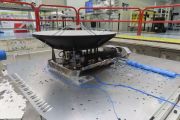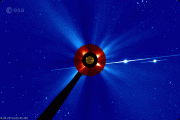
Copernical Team
Why is it so hard to take a good photo of the moon with my phone?
This request seems a bit unusual, so we need to confirm that you're human. Please press and hold the button until it turns completely green. Thank you for your cooperation!
Press and hold the button
If you believe this is an error, please contact our support team.
185.132.36.159 : 7dfe318a-9df0-4e61-bde6-51b666a9
China plans to go to the moon by 2030. Here's what's known about the mission and why it matters
This request seems a bit unusual, so we need to confirm that you're human. Please press and hold the button until it turns completely green. Thank you for your cooperation!
Press and hold the button
If you believe this is an error, please contact our support team.
185.132.36.159 : 8d82b66f-b2ac-499f-9b7c-2b5c8bc3
Amid new FAA restraints, SpaceX goes for record launch
This request seems a bit unusual, so we need to confirm that you're human. Please press and hold the button until it turns completely green. Thank you for your cooperation!
Press and hold the button
If you believe this is an error, please contact our support team.
185.132.36.159 : 6e51bcf4-8384-4cf6-818c-51298f94
New deployable structures could help astronauts maintain muscle mass in space
This request seems a bit unusual, so we need to confirm that you're human. Please press and hold the button until it turns completely green. Thank you for your cooperation!
Press and hold the button
If you believe this is an error, please contact our support team.
185.132.36.159 : a18507f8-e4f2-4c1e-b788-52056bb2
China's stranded astronauts 'in good condition' after space debris delays planned return
This request seems a bit unusual, so we need to confirm that you're human. Please press and hold the button until it turns completely green. Thank you for your cooperation!
Press and hold the button
If you believe this is an error, please contact our support team.
185.132.36.159 : 90f9b6ff-ada7-4b52-93ab-f745b26d
Paving the way for next-generation antennas
 Image:
Paving the way for next-generation antennas
Image:
Paving the way for next-generation antennas Tiangong hosts dual crews after debris impact delays Shenzhou-20 return
 Since the launch of Shenzhou-21, China's Tiangong Space Station has entered an unprecedented phase of dual-crew operations, with the Shenzhou-20 astronauts remaining in orbit longer than initially planned following a suspected space debris impact on their return spacecraft. This situation has prompted China's space authorities to activate comprehensive risk assessments and emergency procedures, ensuring crew safety remains paramount.
Since the launch of Shenzhou-21, China's Tiangong Space Station has entered an unprecedented phase of dual-crew operations, with the Shenzhou-20 astronauts remaining in orbit longer than initially planned following a suspected space debris impact on their return spacecraft. This situation has prompted China's space authorities to activate comprehensive risk assessments and emergency procedures, ensuring crew safety remains paramount. John McFall | Prosthetics, possibility & parabolic flights | ESA Explores #16
 Video:
00:12:53
Video:
00:12:53
Meet John McFall – Paralympian, medical doctor and member of ESA’s Astronaut Reserve. As part of ESA’s groundbreaking FLY initiative, John is helping prove that physical disability is no barrier to space. In this episode, he shares the results of a feasibility study showing no technical showstoppers for flying to the International Space Station with a prosthesis and talks about what’s next—from hardware certification and scientific proposals to astronaut reserve training and running in microgravity.
In this miniseries, we take you on a journey through the ESA Astronaut Reserve, diving into the first part of their Astronaut Reserve
University of Freiburg receives four ERC Synergy Grants for major research initiatives
 The University of Freiburg has secured four coveted Synergy Grants from the European Research Council, strengthening its role as a leader in collaborative science and technological innovation. These grants will fund bold new research projects in fields ranging from photovoltaics and cellular biology to cancer treatment technologies, mobile network efficiency, and early medieval European archae
The University of Freiburg has secured four coveted Synergy Grants from the European Research Council, strengthening its role as a leader in collaborative science and technological innovation. These grants will fund bold new research projects in fields ranging from photovoltaics and cellular biology to cancer treatment technologies, mobile network efficiency, and early medieval European archae
Oxford team unveils air-powered robots that synchronize without electronics
 A team at the University of Oxford has introduced a new class of soft robots which operate solely on air pressure, eliminating the need for electronics, motors or computers. As published on November 5 in Advanced Materials, these fluidic robots are capable of producing intricate, rhythmic motions and can synchronize their behaviour automatically when connected.
Professor Antonio Forte of O
A team at the University of Oxford has introduced a new class of soft robots which operate solely on air pressure, eliminating the need for electronics, motors or computers. As published on November 5 in Advanced Materials, these fluidic robots are capable of producing intricate, rhythmic motions and can synchronize their behaviour automatically when connected.
Professor Antonio Forte of O 



































